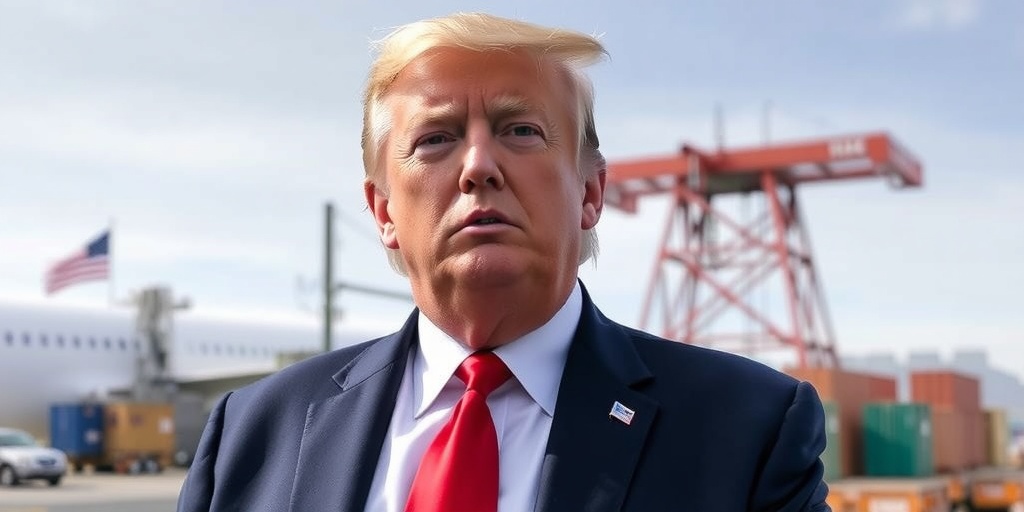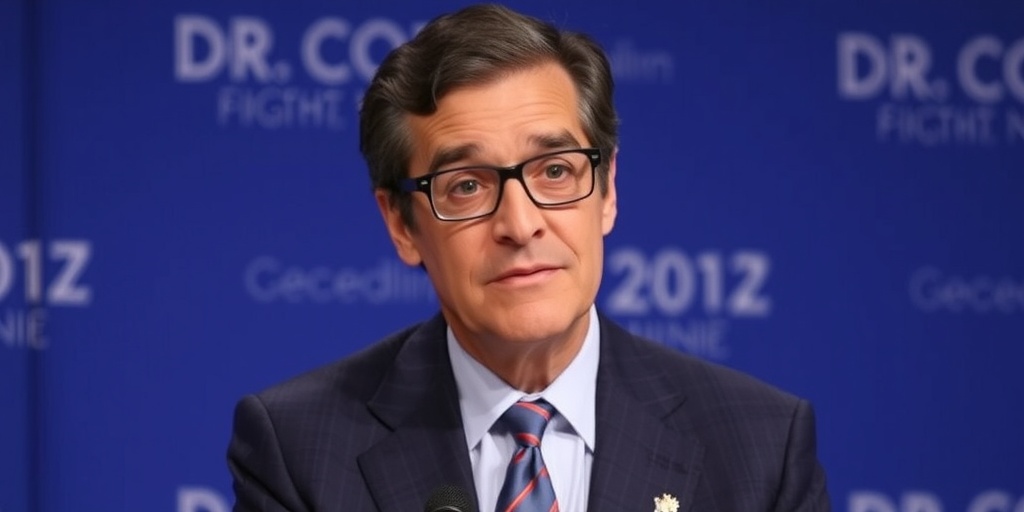Now Reading: Trump Official Hints at Potential Canada, Mexico Tariff Reductions
-
01
Trump Official Hints at Potential Canada, Mexico Tariff Reductions
Trump Official Hints at Potential Canada, Mexico Tariff Reductions

Tariff Tensions Rise as Trump Weighs Possible Revisions Amid Market Turmoil
In a dramatic turn of events, President Donald Trump’s recent decision to impose steep tariffs on goods from Canada and Mexico has sent shockwaves through the global economy. Just one day after the announcement of a 25 percent tariff on products originating from America’s closest trading partners, stock markets took a nosedive, reflecting the uncertainty and anxiety gripping investors and multinational corporations reliant on cross-border trade.
Commerce Secretary Howard Lutnick attempted to calm the storm on Wednesday, suggesting in a Bloomberg TV interview that President Trump might entertain the possibility of lowering these tariffs. According to Lutnick, the administration is "listening to the offers from Mexico and Canada," indicating that certain sectors might receive relief. “He’s thinking about trying to do something in the middle,” Lutnick affirmed, noting that the proposed adjustments wouldn’t apply universally to all products, but rather offer selective relief.
This potential tariff reevaluation comes amid significant stress within the business community. The sweeping levies that Trump enacted not only target Canada and Mexico but also include measures against China—the three predominant trading partners of the United States. Industry leaders are grappling with increased costs, disrupted supply chains, and a volatile market environment. As uncertainty reigns, many companies and foreign governments that depend on trade are on edge, waiting to see whether the president will reconsider or retract his aggressive stance.
Shares of major automobile manufacturers saw a modest rebound on Wednesday, fueled by optimism that Trump might scale back the tariffs. Companies such as General Motors, Ford Motor Company, and Stellantis reported gains of more than 3 percent. This positive shift is particularly significant given that most car manufacturers rely heavily on production facilities and supply chains located in Canada and Mexico. With the inability to swiftly relocate production back to U.S. soil, the stakes are high for the automotive industry.
Trump’s rationale for imposing these tariffs has been to address national security concerns, particularly regarding the influx of drugs and migrants across the U.S. border from its northern and southern neighbors. Despite Canada and Mexico’s promises to increase efforts at border enforcement and combat the drug trade, Trump moved forward with the tariffs, resulting in increased tensions. In a recent press briefing, Claudia Sheinbaum, the president of Mexico, expressively stated, “We will not submit,” showing her government’s staunch resistance to the imposed tariffs.
Sheinbaum mentioned having a scheduled call with Trump, expressing frustration over the lack of communication regarding any potential adjustments to the tariffs. She further warned that if the tariffs remain in place, Mexico would announce retaliatory measures. A demonstration has been scheduled in Mexico City on Sunday to galvanize public sentiment against Trump’s trade policies, highlighting the gravity of the situation.
“Between us all, we have to defend our sovereignty,” Sheinbaum declared, emphasizing the necessity for Mexico to protect its national interests against what it perceives as unjust economic aggression. In light of the tariffs, the Mexican government is already exploring the formation of new international trade partnerships, potentially reaching out to countries like Canada and Chile to bolster its economic posture.
In her remarks, Sheinbaum affirmed that Mexico would actively seek out more trade agreements with other countries as a countermeasure to what it views as a punitive trade policy from the United States. This move signifies a potential shift in the landscape of continental trade relations, as Mexico seeks to diversify its economic partnerships and reduce its reliance on U.S. commerce.
As the situation continues to unfold, the implications of these tariffs not only threaten to reshape economic interactions between the U.S. and its neighbors but could also set a precedent for how trade disputes are handled in the future. Both the American and foreign businesses are watching closely, as they navigate an uncertain trading environment marked by evolving government policies and geopolitical considerations.
In conclusion, the resolution of these tariff disputes remains pivotal as stakeholder anxieties mount amid fluctuating stock prices and economic forecasts. The potential for negotiation exists, but whether President Trump’s administration and the governments of Canada and Mexico can reach a compromise remains to be seen, as the clock ticks toward a possible re-examination of these sweeping tariffs.
Stay Informed With the Latest & Most Important News
Previous Post
Next Post
Previous Post
Next Post
-
 01New technology breakthrough has everyone talking right now
01New technology breakthrough has everyone talking right now -
 02Unbelievable life hack everyone needs to try today
02Unbelievable life hack everyone needs to try today -
 03Fascinating discovery found buried deep beneath the ocean
03Fascinating discovery found buried deep beneath the ocean -
 04Man invents genius device that solves everyday problems
04Man invents genius device that solves everyday problems -
 05Shocking discovery that changes what we know forever
05Shocking discovery that changes what we know forever -
 06Internet goes wild over celebrity’s unexpected fashion choice
06Internet goes wild over celebrity’s unexpected fashion choice -
 07Rare animal sighting stuns scientists and wildlife lovers
07Rare animal sighting stuns scientists and wildlife lovers





















